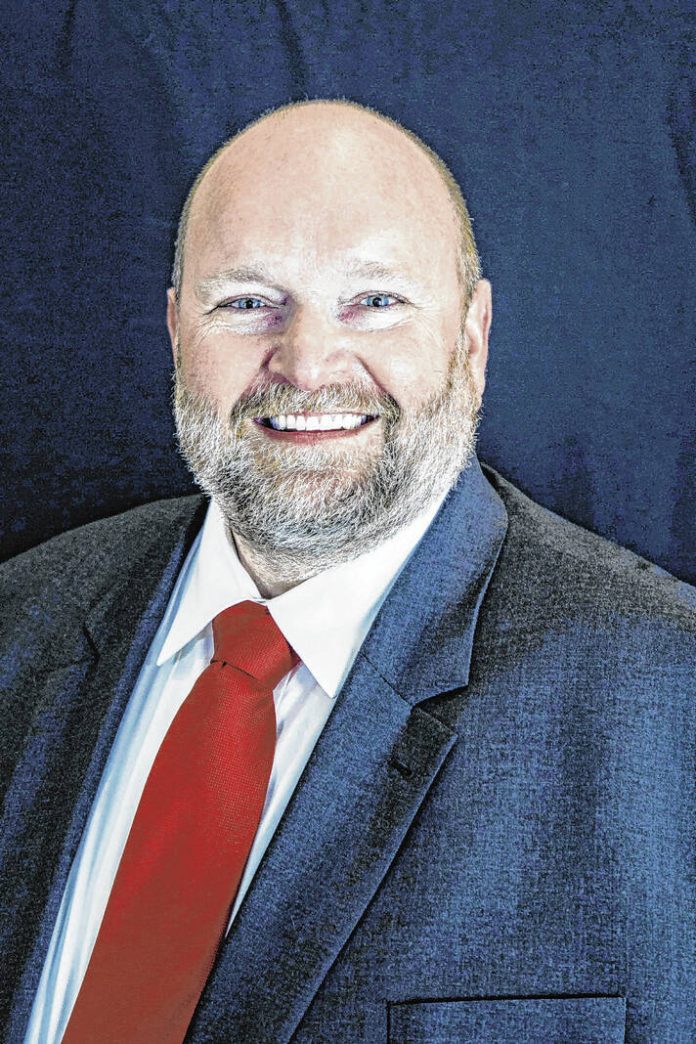Bartholomew County Plan Commission is recommending that every request to build a biosolids storage facility within an agricultural-zoned area is to be considered as a request for a conditional use permit, which requires a public hearing.
The change was made at the request of the Bartholomew County commissioners and is the latest response to a pending biosolids facility being proposed in the county.
If the county plan commission’s plan is approved, the creation of these types of facilities will be determined on a case-by-case basis by the Bartholomew County Board of Zoning Appeals (BZA). A conditional use permit ensures a public hearing to allow neighbors and others to express their concerns, County Commissioner and Columbus Plan Commission member Tony London said.
The decision by the BZA will be based on the proposal’s merits and ongoing efforts to provide as much consistency of regulation throughout the county, City-County Director of Planning Jeff Bergman said.
London says he’s received calls from constituents who feel they don’t have any say about the application of biosolids as fertilizer because those standards fall under IDEM’s exclusive jurisdiction.
The unanimous plan commission decision comes after dozens of local residents, including officials with popular recreational establishments, expressed concerns ranging from the possible adverse environmental effects of the sewage-sludge to the impact of unpleasant smells that could spread to nearby properties.
The commission’s approved revisions will be submitted to the commissioners, who will conduct two public hearings before either approving what the plan commission provided or denying it. The commissioners could also make changes of their own, which would send the resolution back to the plan commission.
“If they adopt these (revisions), they will become part of the Bartholomew County Zoning Ordinance,” Bergman said. “Historically, as the city and county make changes, the other governmental entity will consider following suit.”
The city will eventually consider adopting the same revisions, so it would pertain to the city’s two-mile jurisdiction outside the city limits, Bergman said.
The plan commission’s revisions approval came less than a week before IDEM has a public hearing on a request from Evan Daily of Biocycle LLC to accept dewatered biosolids for blending and use on farmlands.
The two-hour IDEM hearing begins at 6 p.m. Wednesday (April 17) in the Sports Center Building at CERAland Park, 3989 S. County Road 525E. Paul and Linda Peterson requested the IDEM public hearing to allow for potential further comments.
“People whose voices have not been heard have several legally valid comments which may help IDEM make a more informed decision regarding the permit approval or rejection,” the Petersons stated in their request.
Both Bergman and London emphasized the proposed revisions only pertain to storage facilities.
“With regards to standards, we don’t have a lot of expertise that IDEM personnel have,” London said. “I don’t know if we need to be getting into the standards.”
But there is a need for the adoption of a definition of a biosolids storage facility. Bergman said he wrote one that is mostly inspired by terms used by IDEM:
An area of land or structure(s) used for the storage of biosolids (the organic materials resulting from the treatment of human sewage at a sewage treatment plant) until those biosolids may be delivered to and land-applied at locations off-site from the storage facility. The term excludes the on-site staging and/or stockpiling of biosolids for application on the property on which the staging or stockpiling occurs.
“So if somebody gets a delivery to their field, that’s not addressed by this definition,” Bergman said. “It also excludes any biosolids storage at a sewage treatment plant or sanitary landfill.”
The changes regarding biosolids storage facilities take up only two pages of a 20-page document with proposed changes in the zoning ordinance.
There are also proposed revisions regarding electric vehicle charging. As initiated by the city, basic standards for charging stations have been created. Bergman said the city chose to require charging stations in certain situations for multi-family developments and lodgings, such as hotels and motels. The county will consider adopting the city’s changes, as well as space requirements for charging, he said.
Almost half of the 20-page document is made up of minor changes regarding mobile and manufactured home standards. Bergman said it consists of verbiage changes that keeps the county in compliance with changes in Indiana law.
“There may be some variations on how we do that, but we generally do these requirements already,” Bergman said.





